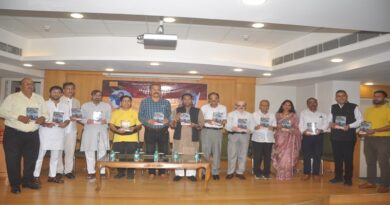Budget 2024-25 Boosts Job Creation Initiatives

New Delhi: The Budget 2024-25 presented was a balanced one, with a distinct focus on women, youth and job creation, emphasising the sustained efforts to generate ample opportunities for all. As the honourable Finance Minister mentioned, India’s economic growth continues to be the shining exception despite global uncertainties and will remain so in years ahead. Initiatives towards skilling, boosting the participation of women in the workforce, driving the use of technology in agriculture and supporting SMEs that are the greatest employment generators are particularly notable. These measures provide the much-needed fuel to drive India’s economic growth.
The provision of Rs 1.48 lakh crore this year made for education, employment, and skilling is commendable. In addition, employment-linked skills are expected to benefit 2.1 lakh youths, particularly first-time job seekers. The proposed revision of the Model Skill Loan Scheme is also expected to help 25,000 students every year. Enhancing the Mudra loan amount to ₹ 20 lakh is a step in the right direction. Developing a new credit assessment model, based on the scoring of digital footprints of MSMEs in the economy is expected to be a significant improvement over the traditional assessment of credit eligibility based only on asset or turnover criteria and will help cover MSMEs without a formal accounting system to access the same and drive true financial inclusion. It is also encouraging to note the intent to drive participation of women in the workforce. This has been backed up by provisions to set up hostels, establishing creches creating partnerships to organize women-specific skilling programs. A focus on geriatric care would have helped create more well-rounded benefits as women often need to drop out of the workforce in the absence of any infrastructural support for the same.
The depth of talent in India is well-recognised. To capitalise on this, incentives encouraging ease of doing business while exploring ways in which IT can be used for further formal job creation, such as improving citizen services, will address the needs of our large population resulting in improving standards of living and ensuring better targeting of subsidies.
The Budget has also taken steps to ease access to educational loans. Students will benefit from the e-vouchers for loans up to Rs. 10 lakh for higher education in domestic institutions. The new centrally sponsored scheme for 20 lakh youth to be skilled over 5 years is a welcome move. The proposal to upgrade around 1,000 industrial training institutes with hub and spoke arrangement will help elevate the quality and relevance of the courses and ensure that they meet industry standards. The course content is expected to be tailored to the needs of the industry, particularly emerging sectors. Stronger industry-academia partnerships will encourage wider and impactful reach.
The proposal to harness Digital Public Infrastructure to improve agricultural practices sets a great precedent for the digitisation of traditional sectors of our economy. Farmers can benefit from using data effectively for better credit risk assessment, soil analysis, and market conditions. It is hoped that more sustainable and scientifically advanced farming techniques would also find more takers through this route. One hopes the focus on technology adoption extends to other key sectors of the economy as a way to drastically enhance productivity and efficiency, besides spurring new and innovative business models.
The technology industry as well as the workforce will benefit from measures to simplify the tax regime and delays in payments of TDS up to their filing due date. The abolition of the Angel Tax for all classes of investors will also bolster the Indian startup ecosystem. Similarly, the Government’s endeavour to launch internship opportunities in 500 companies, extending to one crore youth over five years, will provide these interns with valuable exposure to real-life environments. The move to allow 10% of training costs to be allocated from CSR funds will help make this initiative viable for companies and students alike.
India has proven itself as a global hub for technology talent and emerged as a preferred destination for global capacity centres (GCCs). Taking steps to smoothen the path and also ensure ease of doing business will drive innovation from India.







Thanks , I have just been looking for information approximately this topic for a while and yours is the best I have found out so far. But, what in regards to the bottom line? Are you positive concerning the source?